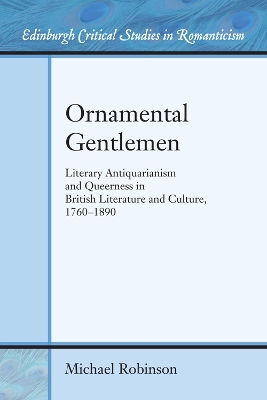Edinburgh Critical Studies in Romanticism
1 total work
Why is book collecting controversial in late eighteenth- and nineteenth-century Britain, and what role does book collecting play in the history of homophobia? How does the buying and collecting of books figure in the lives and works of the Romantics, those supposed apostles of spiritualized poetic genius? What is "bibliomania," and what makes this "book-disease" significant in eighteenth- and nineteenth-century British culture? This book addresses these and many more questions about the suppressed bookish dimension of Romanticism, as well as Romanticism's historical forebears and Victorian inheritors. The analysis ranges widely, addressing Gothic novels by a pair of noted eighteenth-century book collectors (and pederasts), campy bibliographies and mock-heroic poems about book auctions by an excited fan of aristocratic book collectors, narratives of compulsive book collecting (and drug-abuse) by a prototypical Bohemian and self-styled addict, and the rare-book forgeries of queer bibliographer-scholars responsible for canonizing some of the Romantic poets. In the process, this book uncovers surprising connections between conceptions of literature and sexuality; literary obscurity and queerness; and forgery, sexuality and authenticity. Series editors: Ian Duncan and Penny Fielding
This innovative series of research monographs aims to develop a properly extensive, inclusive and internationalist view of British Romanticism with Scotland as one of its generative cores. Volumes will contribute to the on-going redefinitions of the field.
This innovative series of research monographs aims to develop a properly extensive, inclusive and internationalist view of British Romanticism with Scotland as one of its generative cores. Volumes will contribute to the on-going redefinitions of the field.
